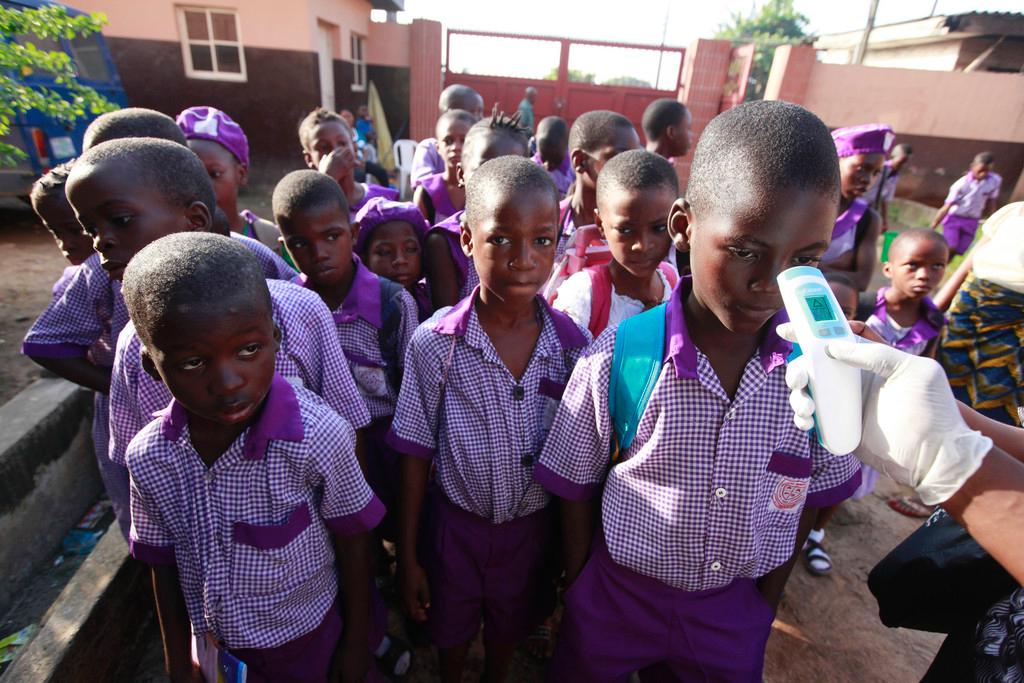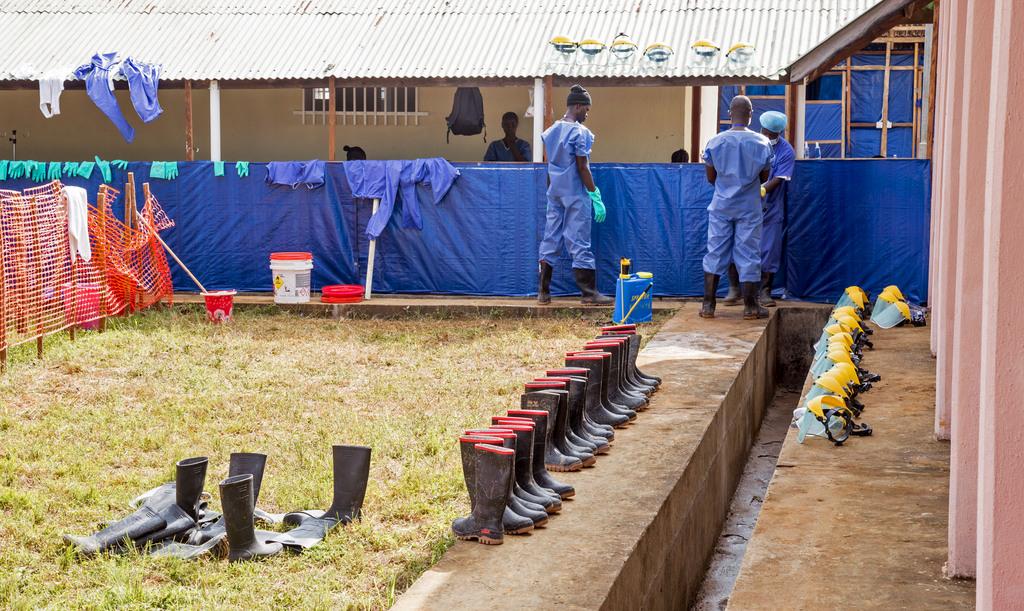Three-day Ebola quarantine judged ‘too short’

Swiss scientists studying patient data from the Ebola epidemic in Sierra Leone have concluded that a quarantine period of three days is too short to identify all cases.
The team, led by Tanja Stadler from the Department of Biosystems Science and Engineering at the federal institute of technology ETH Zurich, analysed the DNA of 70 people who had fallen ill with Ebola in Sierra Leone in May and June. The researchers used software to establish a family tree of the virus.
They thus obtained a reproduction rate for Ebola – the number of cases one case generates on average over the course of its infectious period in an otherwise uninfected population – of 2.18. Previous estimates of the reproduction rate had ranged from 1.2-8.2.
“A big advantage of our method is that it takes into account unregistered cases and therefore the real measure of the epidemic can be calculated,” Stadler said in a statement on Wednesday. The researchers put the grey zone of non-reported cases at 30%.
In addition, they established that the incubation time until the appearance of first symptoms was five days and the contagious period was 1.2-7 days.
“Our data indicate that a quarantine of three days in Sierra Leona was too short,” Stadler said.
On Monday, the Geneva-based World Health Organization (WHO) warned that a study had shown that the Ebola virus could survive in sperm for weeks – even up to three months – after recovery.
For this reason the use of condoms was recommended for at least 90 days after recovery, said Peter Piot, a professor at the London School of Tropical Medicine who was one of the discoverers of Ebola in 1976, at a press conference in Geneva.
Cost of epidemic
On Tuesday, the WHO said Europe would almost certainly see more cases of Ebola after a nurse in Spain became the first person known to have caught the virus outside Africa.
With concerns growing globally that the worst Ebola outbreak on record could spread beyond West Africa, where it has killed more than 3,400 people in three impoverished countries, Spanish officials tried to reassure the public they were tackling the threat. Health experts said the chances were slim of a full-blown outbreak outside Africa.
The regional impact of West Africa’s Ebola epidemic could reach $32.6 billion (CHF31.2 billion) by the end of 2015 if it spreads significantly beyond the worst-hit countries of Guinea, Liberia and Sierra Leone, the World Bank said on Wednesday.
“The enormous economic cost of the current outbreak to the affected countries and the world could have been avoided by prudent ongoing investment in health systems-strengthening,” World Bank President Jim Yong Kim said in a statement.

In compliance with the JTI standards
More: SWI swissinfo.ch certified by the Journalism Trust Initiative












You can find an overview of ongoing debates with our journalists here . Please join us!
If you want to start a conversation about a topic raised in this article or want to report factual errors, email us at english@swissinfo.ch.